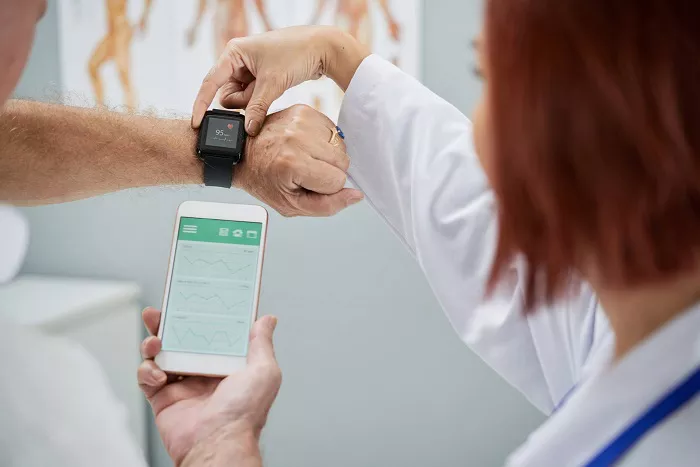Amanda Faulkner, a consultant psychiatrist from Napier, came close to death in January, but a life-saving alert from her smartwatch helped her get the medical attention she urgently needed. Faulkner, who had been feeling fatigued, hot, and had experienced a heavy period, initially dismissed her symptoms, attributing them to the summer heat and possibly perimenopause. With a busy schedule managing over 60 patients, she didn’t think much of it.
“I thought I was probably just a bit anaemic,” Faulkner told the Herald.
However, her Apple Watch Series 10, which she had recently upgraded from her husband Mike’s old watch, alerted her to a potential health issue. The Vitals app on the smartwatch was sending notifications about her increased resting heart rate, which had risen from her usual 55 beats per minute to the 90s. Although she considered the alerts might be due to a faulty device, the notifications continued every day, prompting her to consult her GP.
The Vitals app also provided graphs that showed a clear trend, which Faulkner shared with her doctor. “Hand on heart, if it wasn’t for my smartwatch constantly nagging me, I wouldn’t have even noticed something was wrong,” she said.
Her GP took immediate action and referred her to the emergency department (ED) in Hastings for further tests. Within four hours, she was diagnosed with Acute Myeloid Leukaemia (AML), a rare form of blood cancer. Doctors told her that if she had delayed seeking medical help, she could have died from the untreated cancer and its complications within days.
On January 9, Faulkner was transferred to Palmerston North Hospital for further treatment. Although she remains in the hospital undergoing chemotherapy, she is scheduled for a stem cell transplant in July. The procedure, which involves replacing her bone marrow with that of a donor from Europe, carries a 20% risk of mortality.
Despite the challenges, Faulkner remains hopeful. “It’s pretty confronting,” she acknowledged, but she and her husband maintain an optimistic outlook. Mike Faulkner praised the Apple Watch for playing a crucial role in saving his wife’s life, highlighting how the smartwatch’s data gave them a head start in addressing the condition. “The data made a life-changing difference,” he said, underscoring that the early alerts significantly increased her chances of survival.
Faulkner, who has previously worked as a psychiatrist in both the UK and New Zealand, is determined to return to her professional and personal life after her recovery. A key concern for her is reconnecting with the 64 patients who were on her waiting list when she was diagnosed.
Although Apple emphasizes that its heart-related features are not diagnostic tools, they can act as early screening methods. These features, which were approved by the FDA in 2018, are designed to alert users to potential health issues, providing them with valuable information to share with their GP or specialist.
Dr. Sumbul Desai, Apple’s Vice President of Health, explained that while the Apple Watch is not intended as a diagnostic tool, its ability to monitor heart rate has been shown to indicate various conditions, including fever or allergic reactions. Research into how wearables can be integrated into clinical practice continues to grow. Dr. Ruhi Bajaj, a health informatics researcher at the University of Auckland, pointed out that with advancements in machine learning, wearables like the Apple Watch have the potential to shift healthcare from reactive to proactive, providing early intervention.
In related research, Dr. Amy Chan, a faculty member at the University of Auckland’s School of Pharmacy, is working on a prediction model for asthma attacks using wearables like the Apple Watch. This highlights the growing role of technology in providing early warnings and transforming healthcare practices.
For Faulkner, the smartwatch’s role in detecting her condition is a reminder of the potential of wearable technology to play a crucial role in healthcare and life-saving decisions.
Related Topics:

